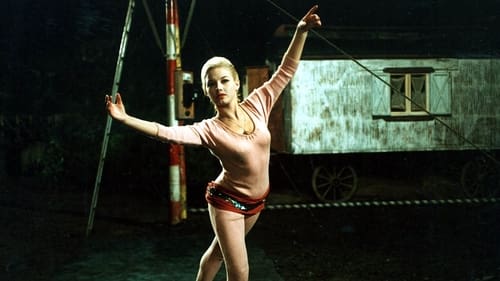
docent Baux
Lemuel Gulliver (Lubomír Kostelka) has had a car accident and continues his journey across the unknown countryside on foot. On the road he finds a dead rabbit dressed like a man and takes a watch from its waistcoat breast pocket. The half-ruined house that he enters reminds Lemuel of his childhood and brings up a painful memory of a dearly loved girl Markéta who was drowned years ago. Gulliver finds himself in Balnibarbi, a country where he doesn't understand the laws and habits and so continually offends against public decency. It is a day when people are ordered to keep their mouths shut and they force their visitor to follow suit. He faces harsh interrogation and finds it difficult to explain that he is not the rabbit Oscar whose watch has been found in his possession.

A verger, who likes to dress as a priest, is invited, by one of the villagers, to be the pastor at a vacant church. The atheist teacher resents the pastor, and tries to embarrass him in various ways, including being caught with the local girl, Majka.

A black comedy set in a Prague cabaret.

Mayor
Antonin de meia-idade e seus amigos, o major, agora aposentado, e o cónego, estão no rio, a nadar e filosofar. Em seguida, começa a chover. Apenas parece ser aquele tipo de verão. Antonin gere os banhos e natação com a sua opulenta esposa, Katherine... Um homem aparece com a sua caravana puxada por cavalos. Estende uma trave listrada para o outro lado do rio e caminha. Com um pino e um truque de mágica. Ernie o Ilusionista convida a todos para a performance daquela noite... Ernie é um equilibrista de apenas modesta habilidade, mas com uma assistente magra e bonita, Anna. Antonin fala com ela. Os dois passam a noite no balneário junto ao rio, Antonin a massajar os pés dela durante toda a noite. Katherine decide mudar-se para a caravana com Ernie. Mas agora o major e até mesmo o cónego sentem a atratividade de Anna ...

Five Girls Around the Neck, in 1967, set out to explore that critical age of adolescence when a person's character is formed for good or evil. Schorm examined a girl's problems of being giving too much. She tries to buy the goodwill of her less fortunate friends; her intentions are pure, but in the difficulty of communicating she learns envy and deceit, and must decide if she will submit to double dealing or steel her life against self-deception and mediocrity. In addition to the relationship between the girl and her friends, Schorm introduces a teenage romance and the broader relationship between the girl's parents - neatly tied together with segments of Weber's opera "Der Freischütz". He reveals himself as a skilled psychological director with a wide range of knowledge about people.

Esta balada em três partes, que muitas vezes usa a música para substituir o diálogo, continua a ser a forma de realização mais perfeita da visão de Nemec de um mundo de filmes independentes da realidade. Montando uma defesa de indivíduos tímidos, inibidos, desajeitadas, e mal sucedidas, os três protagonistas são uma antítese completa dos heróis industriosos de estética socialista. Os Mártires do Amor consolidou a reputação de Nemec como o tipo desenfreado não-conformista do estabelecimento Comunista considerado o mais perigoso para a sua ideologia.

Frantisek
Na fábula surreal de Jan Němec, um piquenique é grosseiramente transformado numa lição de hierarquia política quando um punhado de figuras de autoridade misteriosa aparecem. Esta alegoria sobre opressão e conformidade foi banida no país de origem, mas tornou-se um sucesso internacional depois de estrear no Festival de Cinema de Nova York.





